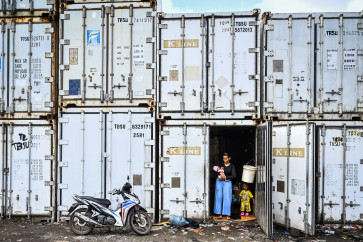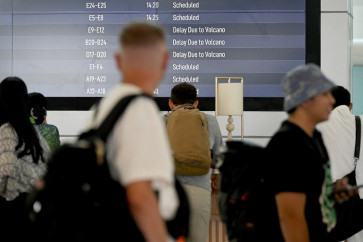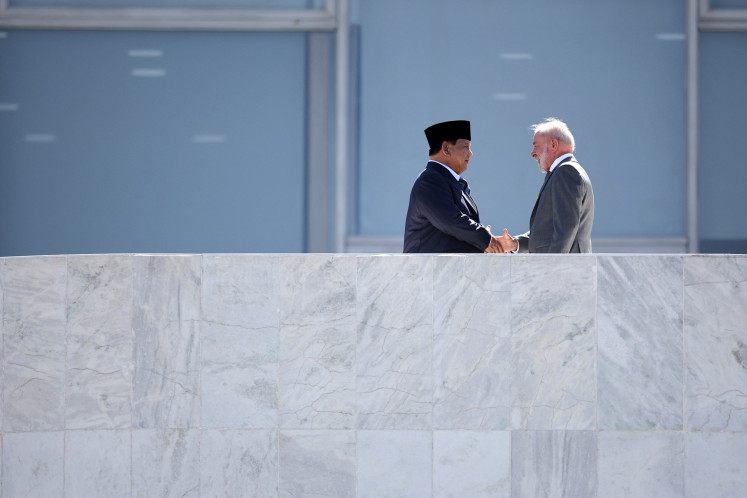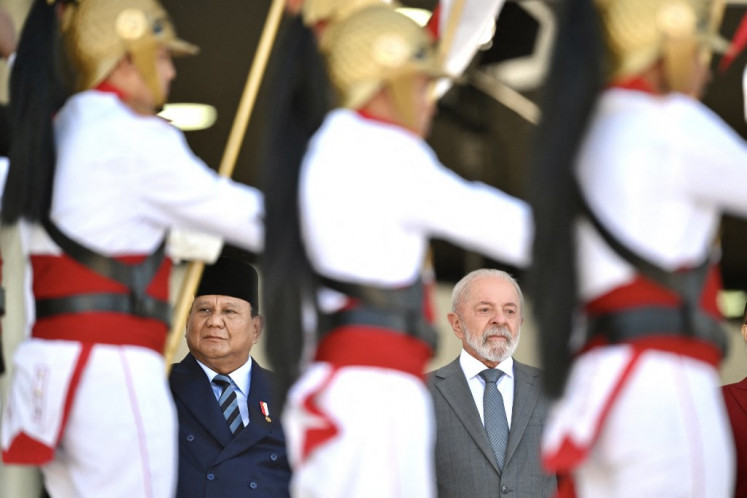Popular Reads
Top Results
Can't find what you're looking for?
View all search resultsPopular Reads
Top Results
Can't find what you're looking for?
View all search resultsGovt to set fleet quota, price controls
The government plans to set price controls and a fleet quota on widely-popular ride-sharing apps like Uber and Grab to secure the incomes of taxi drivers and create healthier competition with conventional taxi services
Change text size
Gift Premium Articles
to Anyone
T
he government plans to set price controls and a fleet quota on widely-popular ride-sharing apps like Uber and Grab to secure the incomes of taxi drivers and create healthier competition with conventional taxi services.
The plan was revealed last week during a public hearing on the revision to Transportation Minister Decree No. 32/2016 on non-route transportation services, which affects ride-sharing business.
The Transportation Ministry’s director general for land transportation, Pudji Hartanto Iskandar, said the revised regulation might include a fleet quota and standardized fares to protect drivers and prevent the bankruptcy of conventional taxi companies.
“We will give regional governments the authority to make [detailed] regulations on these issues. They are the ones who know the data. The know the quotas as well as the price floors and ceilings for each region,” Pudji recently said.
Based on ideas gained from the hearing, he argued that without a fleet quota, conventional drivers could see their incomes plummet.
Furthermore, as the apps can jack up the price of their services during peak times and offer big discounts during off-peak periods, they posed a threat to the conventional taxi business.
Talks on the revision have been going on since the ministerial decree, issued last April, became effective at the beginning of late October.
Ride-sharing app drivers staged a protest following the implementation of the regulation, similar to the protests staged by conventional taxi drivers months beforehand.
Business players earlier expected that a change in the rule would address basic concerns over current practices, particularly legal permits for cars with engines below 1,300 cc utilized by ride-sharing services, which are not allowed in the existing arrangement.
On these legal permit issues, Pudji said the government would allow the 1,000 cc cars to operate and enable drivers to maintain their ownership of the vehicle licenses and later transfer them to cooperatives until the licenses expired.
Among other changes in the decree include the categorization of ride-sharing apps into special charter services and a solution to technical issues related to vehicle roadworthy tests (KIRs), which many drivers complain make it difficult to obtain insurance policies.
The revised ministerial decree is expected to take effect on April 1, even though only half of the 11,000 ride-sharing app drivers in Greater Jakarta have secured legal permits to operate, according to Pudji.
Uber’s cooperative partner Jasa Trans Usaha Bersama (JTUB) denied that price controls and a fleet quota would be put into the revision as various parties had rejected the ideas during the hearing.
“It [the business] can’t be regulated. This is a charter service so it doesn’t even align with the law,” JTUB secretary Musa Emyus said, referring to the Traffic and Land Transportation Law.
If fare limits were applied, they would disrupt the transportation business as it was currently based on supply and demand in the market, Musa added. Furthermore, he said a quota would not work because the ride-sharing business saw high driver turnover.
Organization of Land Transportation Owners (Organda) secretary-general Ateng Aryono, meanwhile, welcomes the application of a quota as he believes it will help sustain conventional businesses.
Indonesian Transportation Society (MTI) expert committee chairman Danang Parikesit said the government had to “accommodate developing technology” and focus on safety and service aspects for consumers instead of fussing about prices and quotas.










